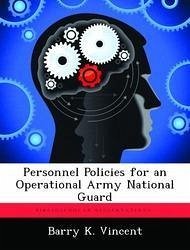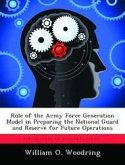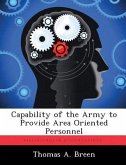The Army recognizes that the Army National Guard (ARNG) must transition to an operational reserve to meet current and future demands. Yet, current policies surrounding enlisted accessions, unit stabilization, mobilizations, and medical and dental benefits are still representative of a bygone era where the ARNG mobilizes and deploys in a Title 10 capacity in the event of partial or full mobilization. The purpose of this study is to identify and analyze the policies that negatively influence unit readiness. The aim is to provide fully manned units without cross-leveling Soldiers. Changes are required for the ARNG to effectively, and efficiently meet the personnel readiness requirements of the Combatant Commanders and Governors as they employ ARNG units to accomplish federal and state missions. This thesis examines the policies affecting unit stabilization, medical and dental readiness, mobilization, and individuals account.








